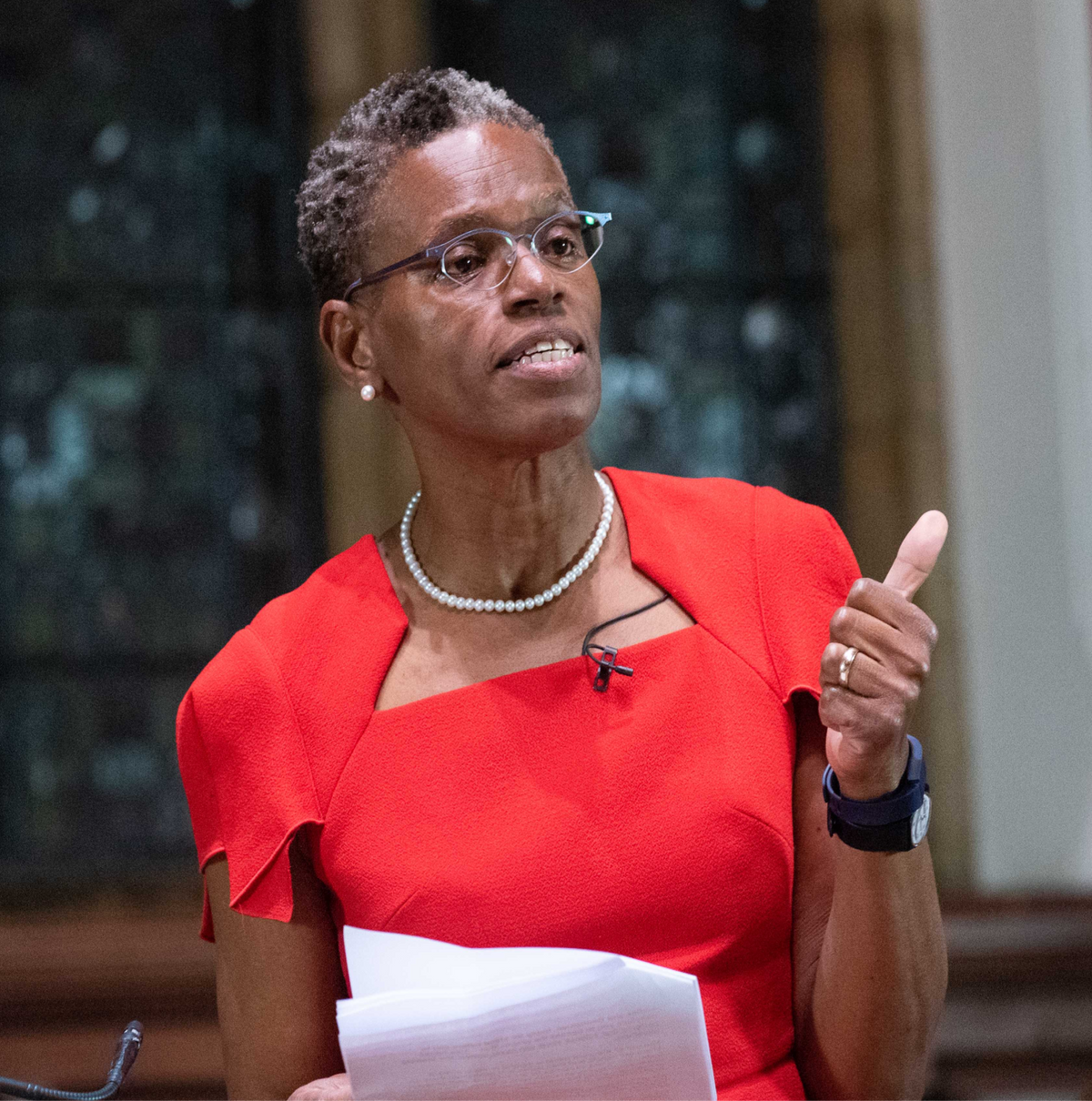
JAPA | Nigerian Professor Historic Leadership Role at University of Cambridge.
|
|
Time to read 2 min
|
|
Time to read 2 min
Professor Ijeoma Uchegbu, a distinguished Professor of Pharmaceutical Nanoscience at University College London, is set to make history as the 7th President of Wolfson College at the University of Cambridge, starting from 1st October 2024. She will be taking over from the current President, Professor Jane Clarke. This appointment is notable as she will be the first black woman to hold this prestigious position in the history of the College.
Professor Uchegbu's journey in academia began with her pharmacy studies at the University of Benin, followed by postgraduate studies at the University of London, where she earned her PhD in 1997. Her research expertise lies in the field of pharmaceutical nanoscience, focusing on the mechanisms of drug transport across biological barriers. Her groundbreaking work in this area has led to the development of innovative treatments, notably the enkephalin pain medicine candidate (NES100), aimed at addressing the opioid crisis.

This work has won numerous awards and recognitions, including first prize in the Royal Society of Chemistry’s Emerging Technologies competition in 2017 and the Academy of Pharmaceutical Sciences Science Innovation Award in 2016.
African students and immigrants have made considerable contributions to various sectors in the UK, including academia, healthcare, technology, and more. Their presence brings cultural diversity, a wealth of knowledge, and a range of perspectives that enrich the academic and professional landscapes. However, despite these contributions, the narrative surrounding immigration, particularly during politically charged periods, can often be skewed, overshadowing the positive impact of these communities.
At the same time, the trend of migration, often referred to as the 'Japa syndrome' in Nigeria, reflects a broader issue. Many of Nigeria's brightest minds, facing challenges such as limited resources, political instability, or lack of opportunities at home, seek better prospects abroad. This brain drain can be detrimental to Nigeria’s development, as the country loses skilled professionals who are crucial for its growth and progress.
The story of Professor Uchegbu is a powerful example that highlights the complex dynamics of immigration and brain drain. Her success in the UK underscores the positive impact that Nigerian and broader African diaspora can have in their host countries. However, it also raises questions about the loss of such talent for their home countries.
Over her career, Professor Uchegbu has received several prestigious awards and honours, such as the UK Department for Business, Innovation and Skills’ Women of Outstanding Achievement in Science Engineering and Technology award in 2007, the Royal Pharmaceutical Society’s Pharmaceutical Scientist of the Year in 2012, and the Academy of Pharmaceutical Sciences Eminent Fellow in 2013. In 2021, she was also recognized as an Honorary Fellow of the Royal Society of Chemistry. Her extensive involvement includes serving on various academic boards and councils, such as the Wellcome Trust and the Academy of Medical Sciences.
Professor Uchegbu has significantly contributed to academic literature, having edited three books and holding 11 patents under his name. She has also written over 120 scholarly articles and book chapters, garnering more than 8600 citations for his work. Her research has gained notable media attention, being featured on platforms such as BBC Woman’s Hour and The Guardian.
In her role at UCL, Professor Uchegbu has been actively involved in fostering diversity and inclusivity in education. She has been instrumental in advancing the organization's race equality agenda as UCL’s Provost’s Envoy for Race Equality. Her commitment to community engagement and inclusivity aligns with the core values of Cambridge University.
Professor Uchegbu's appointment is a significant milestone, symbolizing not only her personal achievements but also marking a progressive step forward in promoting diversity and inclusivity in higher education leadership.
Her leadership at Wolfson College is anticipated to bring a fresh perspective and contribute substantially to the growth and development of the college and its students. She is expected to nurture a research-intensive atmosphere that encourages innovation and critical thinking, enhancing the college's academic and cultural environment.
We congratulate and celebrate professor Ijeoma Uchegbu.